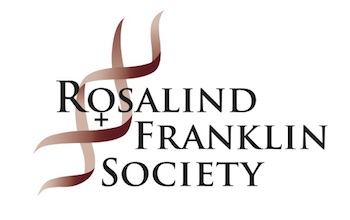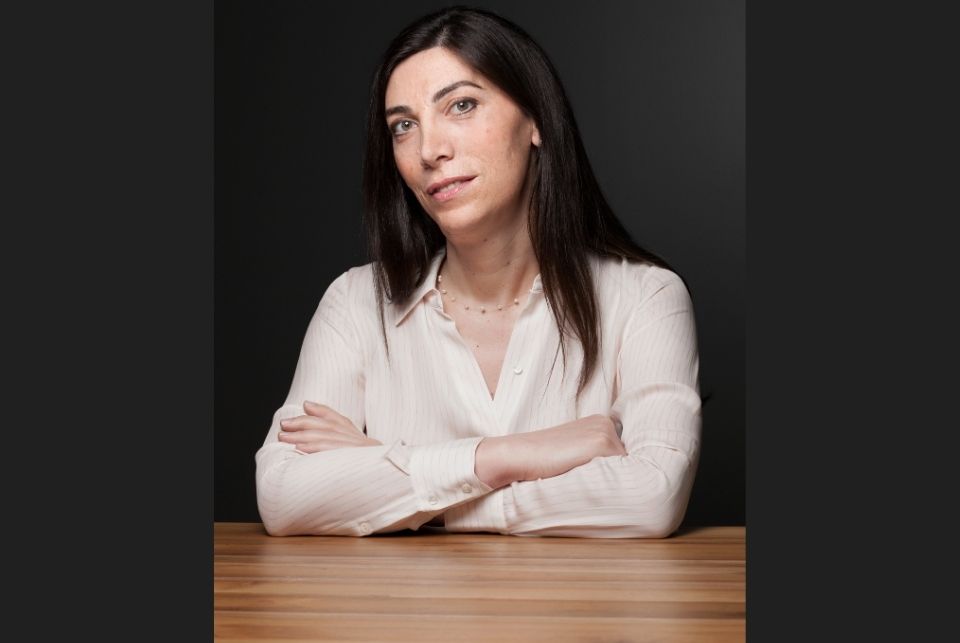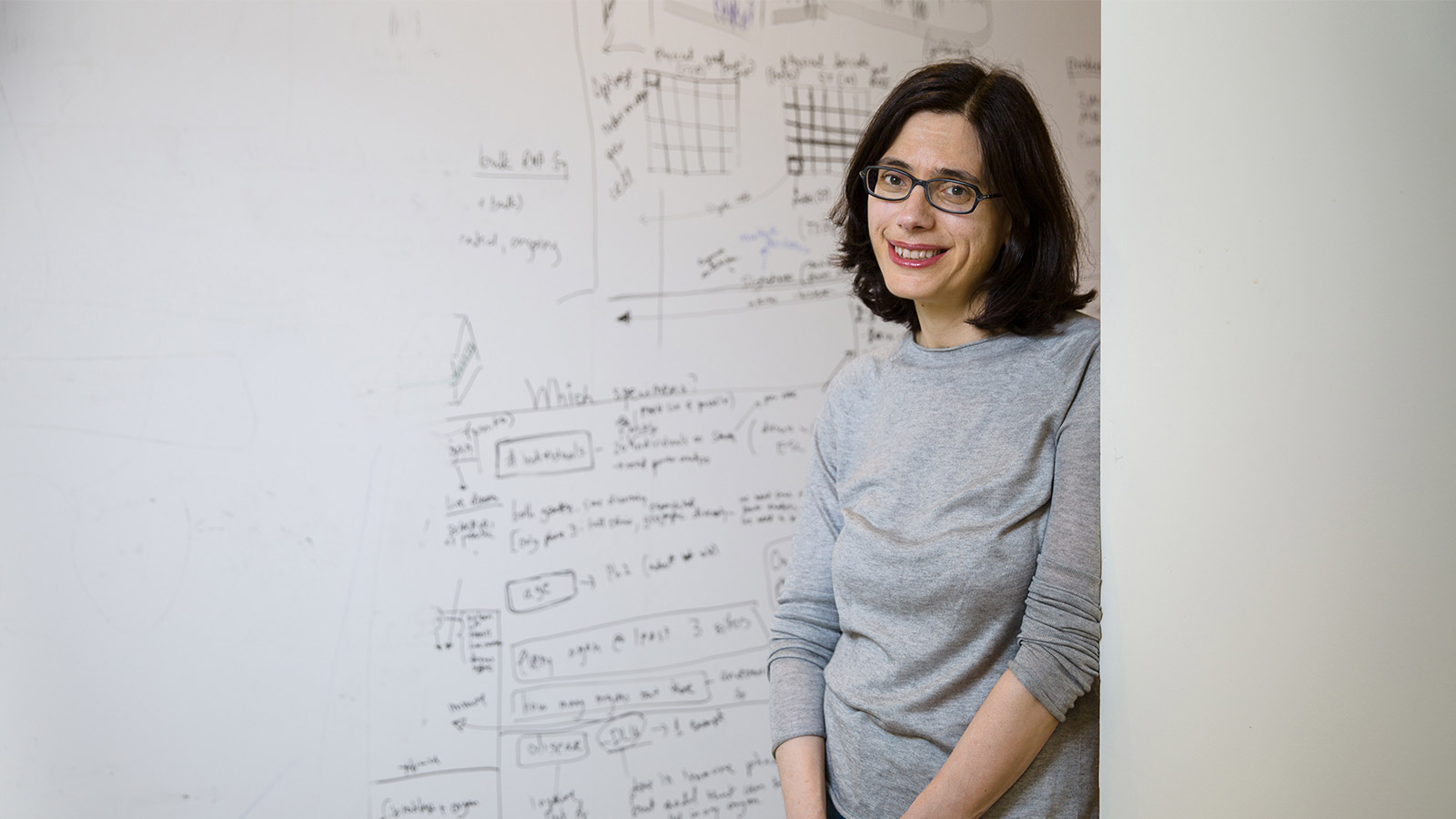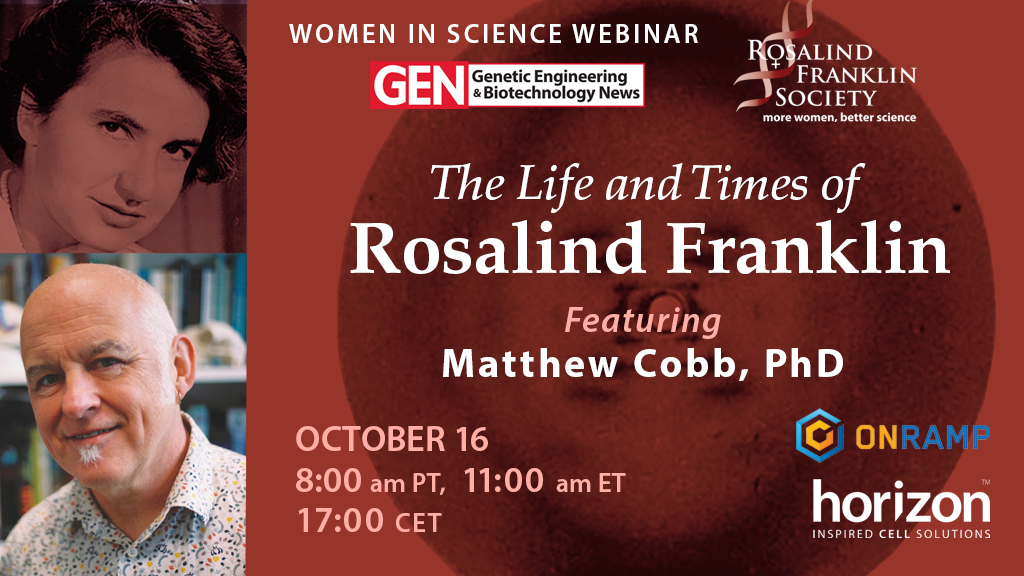RFS Briefings - September 30, 2020Dear Colleagues, I am pleased to include another issue of RFS Briefings with some timely and encouraging updates on women in science. Of particular note, we congratulate Dr. Emily Leproust, CEO and Co-Founder of Twist Bioscience, who received BIO’s 2020 Rosalind Franklin Award sponsored by the Rosalind Franklin Society on September 22, 2020. “Emily Leproust is a driven, authentic and thoughtful leader, disrupting the synthetic biology marketplace; she actively works with industry and government leaders to drive innovation and further the bioeconomy,” commented Stephanie Batchelor, vice president of BIO’s industrial and environmental section, in a recent press release.
We also congratulate Dr. Aviv Regev, who was awarded the 2020 Lurie Prize in Biomedical Sciences for her incredible achievements in biomedical research.
Mark your calendar for Friday, October 16th. We will be hosting our first Women in Science Webinar with Genetic Engineering & Biotechnology News. British biologist and author Dr. Matthew Cobb will explore Rosalind Franklin’s contributions to DNA structure and how they have been seen in popular culture. He will equally focus on the other periods in her life, highlighting the insights they provide us into the mind of one of the 20th century’s greatest scientists, one who would have celebrated her hundredth birthday this year. Register today.
See below for more news about women in science Please continue to share important news and opportunities with us so that we may share it with you, and others who are committed to supporting the careers of exceptional women in science. With regards in these trying times,
Karla Shepard Rubinger NewsTo mark 100 years since the birth of Rosalind Franklin, the Churchill Archives Centre in Cambridge, England, have put together a virtual exhibition to celebrate her life and achievements. Here's how we can make gender equity a reality, today. The Rockefeller Foundation recently hosted a livestream discussion with Vital Voices on how we can use technology as a means to an end to achieve gender equality during the pandemic and beyond. Speakers kick-started the conversation by discussing the Beijing+25: Accelerating Progress for Women and Girls report and explored the ways we can all contribute to a more equitable society for all. The long-running patent battle over CRISPR, the genome editing technology that may bring millions of dollars to whoever is credited with its invention, has taken a new twist that vastly complicates the claims made by a team led by the University of California, including Jennifer Doudna (CVC). According to Science Magazine, Jennifer Doudna and Emmanuelle Charpentier “first published evidence that the bacteria-derived CRISPR system could cut targeted DNA in June 2012, 7 months before the Broad team led by Feng Zhang published its own evidence it could be a genome editor. But the CVC team did not show in its initial paper that CRISPR worked inside eukaryotic cells as Zhang’s team did in its report, even though the original CVC patent application broadly attempted to cover any use of the technology.” Read more on Science Magazine. Prof Karalyn Patterson recognised with Suffrage Science award that celebrates women in STEM. Prof Karalyn Patterson, of the MRC Cognition and Brain Sciences Unit at University of Cambridge, will be honored at a special event on November 6th, the sixth Suffrage Science awards celebration for women working in the Life Sciences, along with 10 other scientists and science communicators who are women. NASA outlines plan for first woman on Moon by 2024. Only 12 humans, all male, have ever walked on the moon and they were all American, according to Bettina Inclán, NASA Communications Director. Read more on CNN. OpportunitiesSubmit your abstract and present your work to global audiences at the upcoming "Asthma: New Discoveries in the Age of Pandemics" eSymposia. Scholarship opportunities are available for students and post-doctoral fellows to attend for free. The meeting will explore the intersection between inflammatory airway diseases like asthma, and COPD, with COVID-19 respiratory infection, examining overlapping symptoms and disease pathology to inform therapeutic insights. 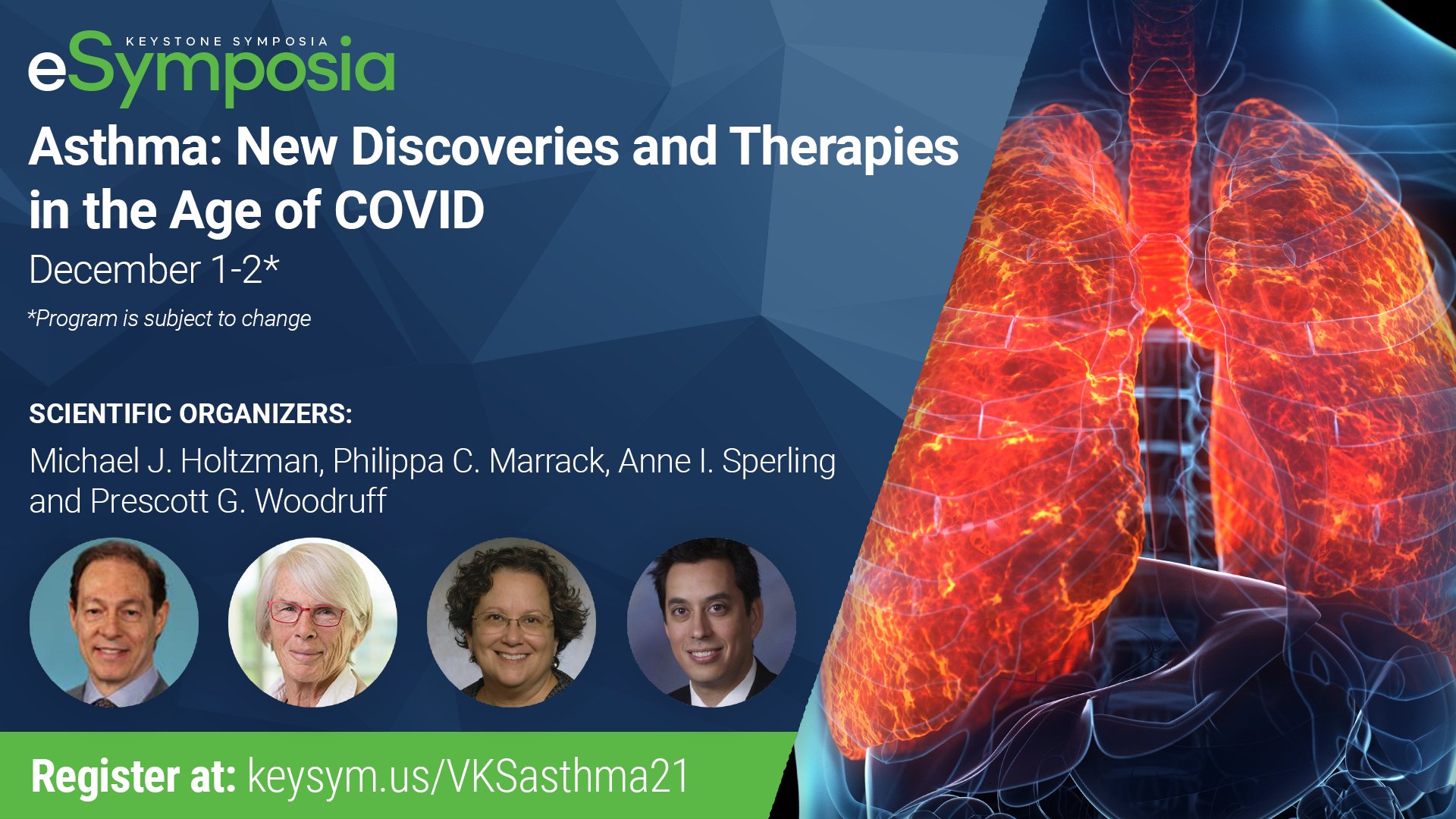 Less than 1 month left to nominate for Szent-Györgyi Prize for Progress in Cancer Research: Candidates must have made an original discovery or breakthrough in scientific understanding that has led to better prevention, earlier diagnosis, or new treatments for patients with cancer. The deadline for nominations is October 15, 2020. Call for award applicants: Johnson & Johnson is accepting applications for its 2021 Women in STEM2D (WiSTEM2D) Scholars Award. The award honors women scholars working in science, technology, engineering, math, manufacturing and design with a $150,000 grant and three years of mentorship. The deadline for applications is October 15, 2020. Want to make the world better with your research? The 2020 application for the Kuno Award for Applied Science is open until September 30th. The award supports the translation of scientific research to a practical, real-world solution for those aiming to achieve broad social impact. IdeasPodcast: Wonder WomXn in Science and Engineering with Dr. Joanne Kamens. Science Rehashed recently interviewed Dr. Joanne Kamens, the Executive Director of Addgene and the founder of the Massachusetts chapter of Association for Women in Science. She was also a featured speaker at a past RFS Board Meeting & Colloquium at the Wistar Institute. They discussed her journey in academia, pharma, and biotech, how she advocates for women and minorities in STEM fields, and Addgene’s efforts to build an equitable workplace environment. The Young Scientists Journal, the world's peer reviewed science journal written and edited exclusively by 12-20 year olds, posted a series of articles as part of the Rosalind Franklin day. Articles include: Martha Chase: The Underappreciated Geneticist; CRISPR CAS-9: How a biological enigma lead to today’s most widely used gene editing technology; The Role of AI in Gene Technology; and Tissue Engineering, Organoids and Genetic Diseases. EMBL, Europe’s flagship laboratory for the life sciences, recently hosted a virtual event, The impact of the COVID-19 crisis on women in science: Challenges and solutions, to explore solutions to minimize the gender gap in academia and the impact of the COVID-19 pandemic on women scientists. You can now watch the sessions on YouTube. The pandemic impacts everyone – but not equally. According to a survey conducted by researchers at the London School of Economics with 3,200 scholarly authors across 80 countries, around half of the respondents had ‘no time at all’ or ‘less time’ for research and writing than they had before lockdown – but female scholars reported far greater time pressures than their male colleagues. Here are the four findings from the survey:
Diversity in science: next steps for research group leaders. With a heightened awareness of inequity in academia, many institutions publicly pledged their commitment to inclusion, and researchers are evaluating their responsibilities to foster diverse, open and inclusive working environments. What can be done to better support women pursuing their PhDs in Africa? In Africa, women make up just 30% of researchers. The Consortium for Advanced Research Training in Africa (CARTA) was formed in 2008 and caters well for women looking to complete their doctorate degrees. In this article for The Conversation, Anne M. Khisa explains why it serves as a model to better support women academics in Africa. Women in STEMDr. Camilla Rothe, an infectious-disease specialist in Munich, is on TIME's list of the 100 most influential people of 2020. She was one of the first to document asymptomatic transmission of the Covid-19 coronavirus. “Her discovery has saved countless lives, and if only we all had listened to Dr. Rothe earlier, more spread could have been prevented,” writes Eric Topol, a professor of molecular medicine at Scripps Research and the editor in chief of Medscape. A new approach to a deadly breast cancer offers hope to the black women it affects most. “My draw to triple-negative breast cancer is not only that it’s a tough problem but that it disproportionately affects African American women,” says Dr. Karmella Haynes, a chromatin biologist seeking to improve health outcomes for medically underserved patients. It's been 100 years since Rosalind Franklin was born. This Economist podcast episode tells us why her discoveries are more relevant than ever, and how Franklin’s work helps the study of Covid-19. Meet the engineer paving the way for women and BAME science students. Dr Youmna Mouhamad is a finalist in the Woman in STEM category of this year's Womenspire awards, which celebrate inspirational Welsh women. She established Swansea's College of Engineering BAME network, which aims to educate society about equality, create change and empower young people.
Marianna Limas, Social Media Manager |
